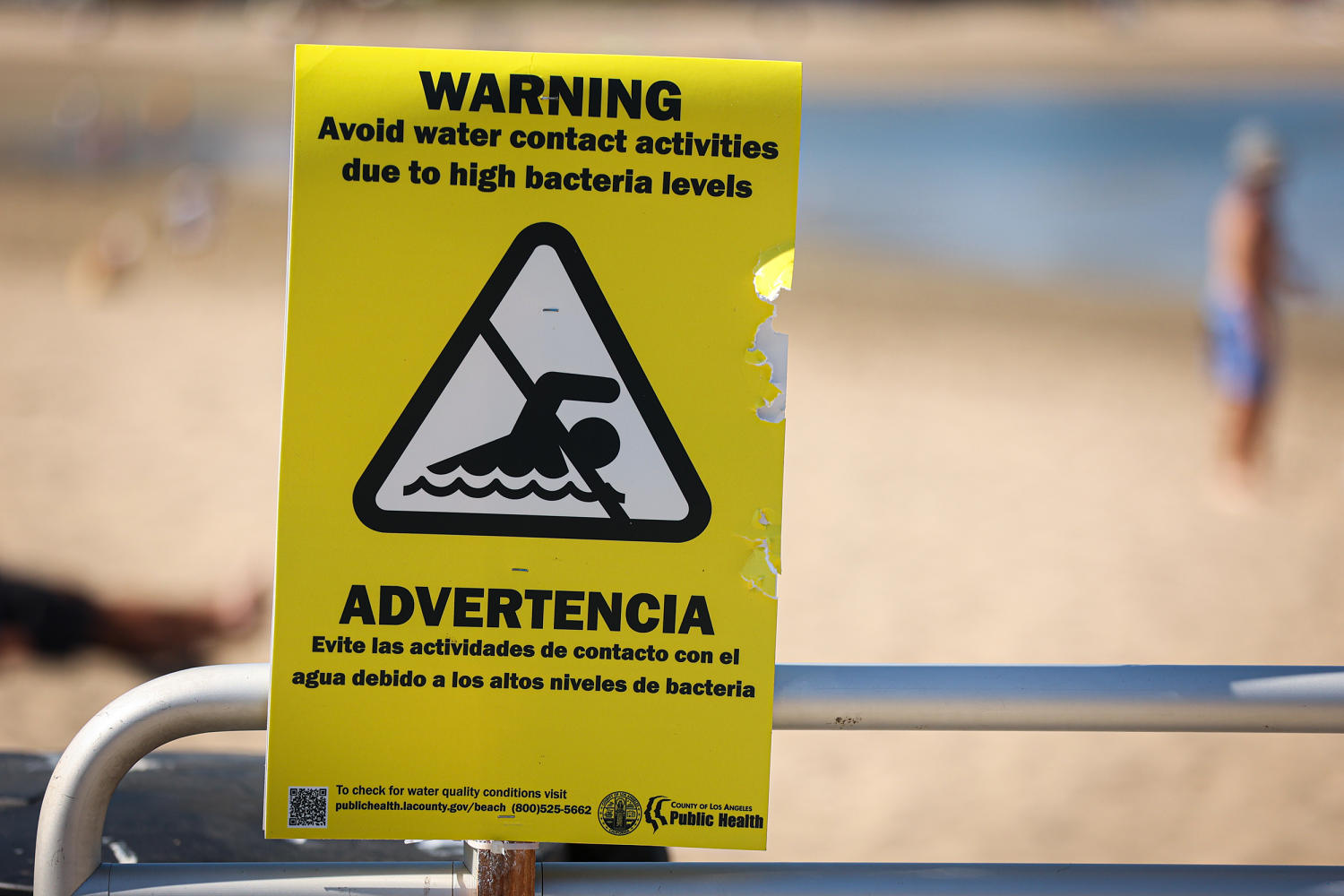
Officials in at least 10 states have closed beaches or warned people not to swim in the water due to high bacteria levels ahead of the Fourth of July holiday.
Some of the closures are related to bacteria from fecal waste, while others are due to high levels of cyanobacteria, also known as blue-green algae, that’s found in freshwater.
Florida, Illinois, Michigan, New Jersey and New York have each reported unsafe levels of fecal waste at certain beaches in the last week. Illinois has issued advisories for 16 beaches, and Michigan has announced two beach closures and five swimming advisories.
In Vermont, six locations are on high alert due to excess amounts of cyanobacteria, so the state is telling people not to swim there.
Many beaches across the U.S. close each year for harmful levels of bacteria. Environment America, an environmental research and policy center, found that more than half of U.S. beaches tested experienced at least one day with unsafe levels of fecal contamination in 2022 based on the Environmental Protection Agency’s standards.
Swimming in waters with high bacteria levels can cause gastrointestinal illness and skin infections, especially for children, older people and individuals with weakened immune systems.
Research suggests that cyanobacterial algal blooms are happening more frequently due to climate change, and exposure to them may cause lifelong health problems. Cyanobacteria produce microcystin, a toxin that may damage the kidneys, liver or reproductive system if consumed in high amounts.
As of Friday, Iowa was seeing high levels of microcystin at two beaches and high levels of E. coli at five others.
In Massachusetts, 34 beaches have closed, mostly due to high levels of E. coli or enterococci — types of bacteria that signal the presence of fecal waste. Enterococcus is measured in both marine and freshwater, while E. coli is measured only in freshwater.
Robert Goldstein, commissioner of Massachusetts’ Department of Public Health, said the spike in bacteria levels is common in the state after a heavy rainfall. Rain water picks up bacteria from the environment, such as from animal or human excrement, then carries it into bodies of water.
“After heavy rains, which we’ve had here in the Northeast over the past couple of weeks, there’s an increase in the number of beaches that need to be closed,” Goldstein said.
Around 5% of beaches in Massachusetts are closed throughout the season, Goldstein estimated. The current closures represent only a small fraction of the state’s 1,100 public and semi-public beaches, he added.
The Florida Department of Health also determined that several beaches in Monroe and Hillsborough counties have poor water quality due to high levels of enterococci.
In San Diego, three beaches have closed and two have warnings due to unsafe bacteria levels. And in southeast Virginia, several sites are under a similar advisory.
Goldstein said bacteria levels can change frequently, so people should check their health department’s website for the latest updates on where it’s safe to swim and keep a lookout for safety warnings at the beach.
People can also take action to minimize the amount of bacteria they add to the environment. Goldstein suggested that beachgoers clean up after their pets and properly dispose of trash, both of which could limit animal feces from entering the water.
“Whatever bacteria that they’re introducing into the environment, that bacteria is likely, after a heavy rainfall, to end up in the bodies of water around us,” he said.
